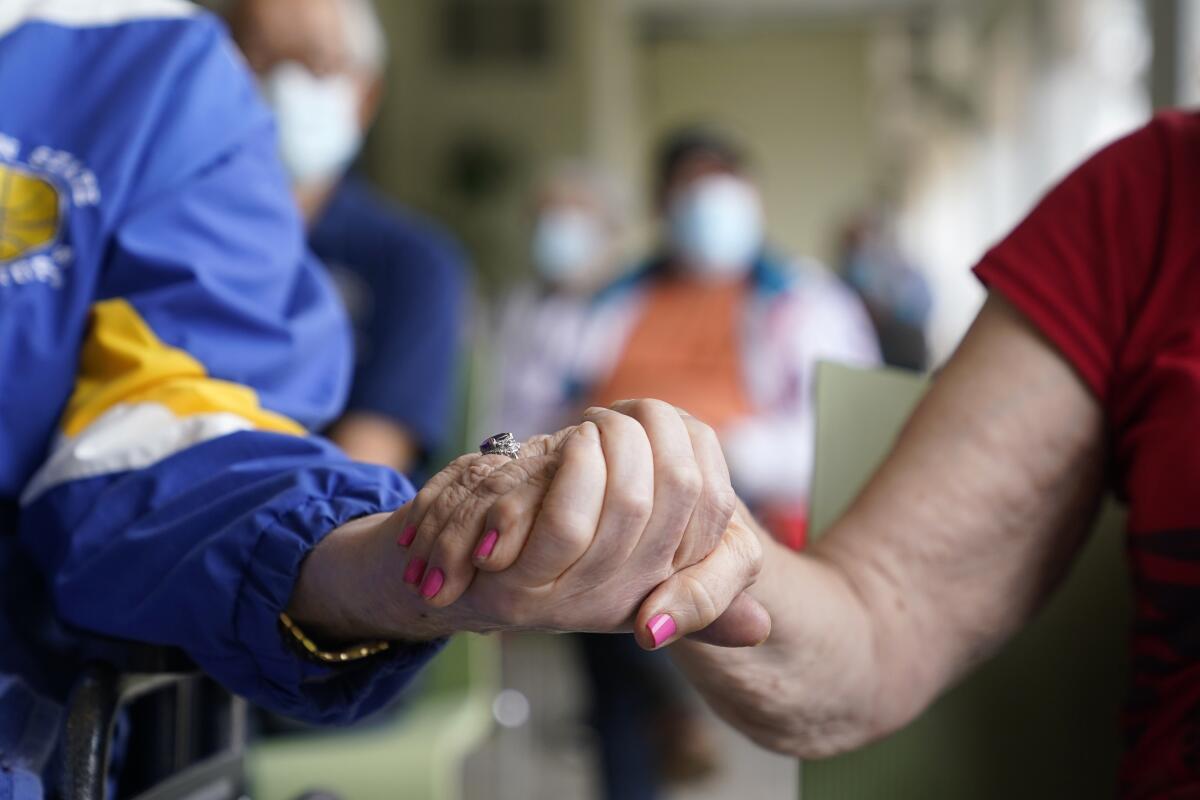In pandemic era, older adults are isolated but resilient, study says

- Share via
Older Americans have generally been viewed as among those most vulnerable to the coronavirus — some of them with serious medical conditions, figuring out how to navigate life in a COVID-saturated, increasingly isolated world.
But when it comes to mental and emotional health, older adults in the United States are showing resilience and persevering despite struggles with loneliness and isolation, the latest results in an ongoing study suggest.
The latest data from the National Social Life, Health and Aging Project, conducted by the social research organization NORC at the University of Chicago, is part of a longer-term study designed to track the physical and emotional well-being of older Americans over time.
Only 9% of older adults reported having “fair or poor overall mental health” during the pandemic, similar to their previous answers and an indication of what the study calls “some signs of resilience.”
Nevertheless, the study found that general happiness has declined. About half as many older adults now report they are very happy or extremely happy, and an increasing number report occasional feelings of depression or isolation.
“It should sensitize everyone to the reality of isolation’s impact but also the reality that people are resilient — and maybe even more so older adults than younger adults,” said Louise Hawkley, a principal research scientist at NORC and the lead researcher on the study.
“This isn’t their first show. They’ve been through things already. They know how to handle stress,” Hawkley said. “This is something we can learn from them — that there is survival.”
Changes wrought by the COVID-19 pandemic have upended the lives of millions of dementia patients and their caregivers, who rely on long-standing routines.
The information comes from 1,284 respondents between the ages of 55 and 99, interviewed in September and October — all of them participants in a longer-term study. No margin of error was provided.
Other interesting findings from the responses include:
- About one-fifth of older adults in the study said they’d had no in-person contact with family and friends outside their own households during the pandemic.
- At the same time, at least half of older adults “have not reduced their frequency of in-person contact with friends and family not living with them” since the pandemic began.
- Where in-person interaction faded, the study showed that electronic communication stepped in to pick up the slack. Perhaps unexpectedly, phone conversations (32%) lagged behind messaging (37%) and video calls (42%).
Children who spread coronavirus to their parents and grandparents are apologizing to them on their deathbeds as L.A. County reels.
Taken together, the responses form what Hawkley calls a portrait of a demographic that crosses generations, is persevering under challenging circumstances, and whose members need more engagement about isolation and emotional health even after the pandemic wanes.
“There’s a lot we don’t appreciate about how well people do cope with age,” said Hawkley, who specializes in researching loneliness and social isolation in older adults. She said arrangements are being made to obtain physical data from the participants as soon as the pandemic ebbs.
“We’re learning painfully how real a risk social isolation is to our mental health,” she said. “And I think we need to learn how it affects physical health.”







